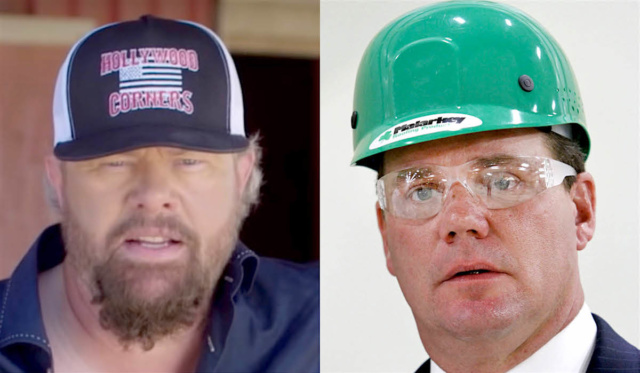
(Editor’s note: This week, NonDoc will publish pieces examining the seven state questions on this November’s Oklahoma ballot. We have already published pieces on SQ 776 and SQ 780 & 781. The pieces are presented in a “filter” format that attempts to answer key questions about the measures and any campaigns being run for or against them. The Yes for 779 campaign is actively advertising on NonDoc.)
In September 2015, NonDoc first broke the news about a push for the statewide petition that eventually became State Question 779. Known as “the penny tax for education,” SQ 779 is among several ballot measures drawing significant attention and debate ahead of the Nov. 8 election.
If passed, SQ 779 will amend the state constitution and levy an additional one-cent sales and use tax to fund education initiatives, including a minimum $5,000 pay raise for Oklahoma teachers.
The full text of the state question can be found at the bottom of this post.
Background
The state sales tax in Oklahoma is 4.5 percent, which ranked 36th nationally as of 2015. Combined with an average local sales tax of 4.27 percent (leading to an average sales tax of 8.77 percent), Oklahoma ranked 6th nationally. Working with the same data, the addition of a one-percent sales tax hike would make the local-state tax average 9.77 percent, which would make Oklahoma the highest ranked state in this metric.
Regarding teacher pay, the average teacher’s salary was $44,373 in 2012, and Oklahoma ranked 48th in the nation, according to the National Education Association. The average starting salary for teachers in Oklahoma was $31,606, which ranked 43rd.
What does SQ 779 do and how?
The one-percent sales and use tax is broken down as follows:
- 69.5 percent to school districts
- 19.25 percent to higher education (colleges and universities)
- 8 percent to the State Department of Education for early learning opportunities for low-income and at-risk children
- 3.25 percent to the Oklahoma Department of Career and Technology Education
The 69.5 percent of collected funds given to school districts is further divided between increasing teacher salaries by at least $5,000 (86.33 percent) and improving reading, high school graduation rates and college readiness (13.67 percent). Of note, any remaining funds from the 86.33 percent earmarked for salaries may be used to prevent teacher/staff shortages by using differentiated compensation or performance pay.
Funds administered to school districts will be annually audited to ensure their appropriate use, according to the measure. It should also be noted that because SQ 779 amends the state constitution, its tax provision and any potential benefits occur in perpetuity.
Who is in favor of SQ 779 and why?
The campaign in favor of SQ 779 is called Oklahoma’s Children, Our Future, also called Yes for 779.
OU President David Boren has been a strong proponent of the measure — as a private citizen, he emphasizes — and was a driving force in the coalition that got the petition approved to appear on the ballot. In an official statement in September 2015, Boren wrote that the state “faces an education crisis” and that Oklahomans “must find a way to help our children and grandchildren create a brighter future for our state.”
When Boren and supporters — like the group Stand for Children — launched their signature drive in October 2015, NonDoc reported on an extensive list of names handed out to media as endorsers:
Members include billionaire philanthropist and oil mogul George Kaiser, musician Toby Keith, former OSU basketball coach Eddie Sutton, Heisman Trophy-winner Steve Owens, Chickasaw Nation Gov. Bill Anoatubby, Choctaw Nation Gov. Gary Batton and Olympic gymnast Bart Conner. The influential surnames Stephenson, Rainbolt and Schusterman also punctuate the list.
Keith has appeared in the campaign’s first television ad.
Others in favor include Oklahoma State Sen. Brian Crain (R-Tulsa), who wrote in a NonDoc point-counterpoint last month that SQ 779 provides “the best and surest effort to improve our education system that has been proposed in at least the last 12 years.”
Who is opposed to 779 and why?
Opponents to SQ 779 include the Oklahoma Municipal League, Oklahoma Lt. Gov Todd Lamb and the Edmond City Council. An opposition campaign, Oklahoma-Vote NO on 779, has 38 Facebook likes.
Oklahoma State Sen. Kyle Loveless (R-OKC) wrote the counterpoint for NonDoc last month. His logic echoes that of other opponents, noting that a one-cent state sales tax “would make it virtually impossible for local governments to increase local taxes for local projects.” Loveless and most other opponents agree upon the need for teacher pay raises to make Oklahoma more competitive on the national stage, but they disagree with the proposed mechanism for doing so.
Opponents also characterize the penny sales tax as “regressive,” creating a disproportionate burden on low- to middle-income individuals and families for funding education.
What is the likelihood it passes?
A poll conducted by News 9 last week shows that 63 percent of likely voters support SQ 779, while 33 percent oppose the measure and 4 percent are undecided.
If passed, SQ 779 would go into effect July 1, 2017.
